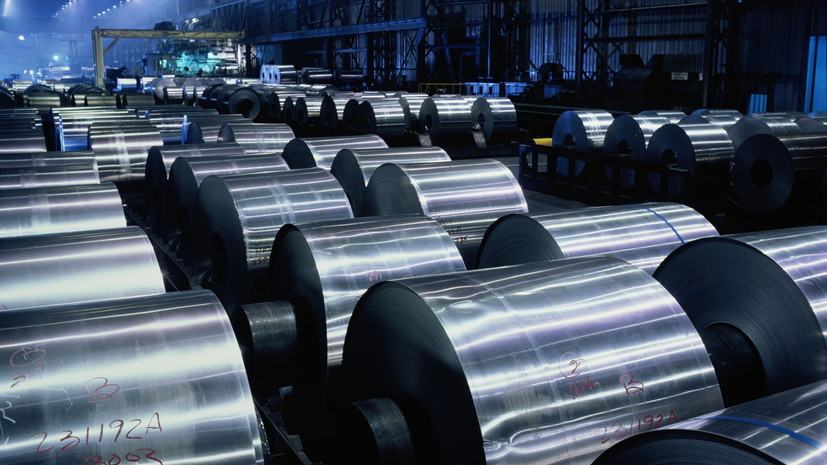From April 10, 2023, the United States imposed a duty of 200% on imports of aluminum products that contain metal of Russian origin. This initiative was previously announced by the President of the United States Joe Biden.
As the head of the White House noted, aluminum production is a key part of the defense industry of the Russian Federation. At the same time, in 2022, Russia was the fifth largest supplier of this metal to the States, Biden emphasized.
Against this background, in an attempt to put pressure on Moscow, since March 10, the United States has raised up to 200% duties on the import of Russian aluminum and goods from it. However, according to experts, Washington's actions pursue not only political goals, but also economic ones.
"By displacing a competitor like Russia, the United States wants to create a sterile environment for domestic producers. That is, the States are trying to protect their market and their own suppliers, "explained BitRiver financial analyst Vladislav Antonov to RT.
Notably, in 2000, the U.S. was the largest producer of primary aluminum in the world. Meanwhile, by the end of 2022, the output of these products in the country fell to 861 thousand tons, as a result of which the country fell to ninth place in the list of the largest players in the global aluminum market. This is stated in the materials of the Congressional Research Service and the Geological Survey of the States.
According to the agencies, today the share of imports accounts for about 80% of domestic consumption of aluminum in the United States. Moreover, back in 2018, the target utilization rate of metal production capacities was set at 80%, but now this figure fluctuates only near the 55% mark.
According to Vladislav Antonov, due to the duties, the Us authorities want to stimulate domestic production and achieve cheaper aluminum products in the country. Nevertheless, in the first stages, the effect may be the opposite, the specialist did not exclude.
"Under the current market conditions, the United States, and with it the European Union, risks facing a shortage of aluminum. How exactly this will affect a number of strategic industries, including engineering, energy and the aviation industry, I think we will be able to see in the second half of this year, "Antonov suggested.
However, according to experts, the imposed 200% duty on products containing Russian aluminum will clearly not lead to an improvement in the situation either in the United States or in the EU. Nevertheless, other large suppliers of the metal, which are able to take a share of Russia, may be interested in the deterioration of the situation in Western markets, analysts do not exclude. We are talking, for example, about Mexico, Arab countries and China.
Moreover, for the Chinese, US duties are becoming a tool to strengthen China's influence on the world economy. Due to the low cost of burning coal, the Celestial Empire has the potential to become the only country that will be able to meet the growing global demand for aluminum, Alexander Razuvaev, a member of the supervisory board of the Guild of Financial Analysts and Risk Managers, told RT.
- Gettyimages.ru
- © Juan Silva
As a result, against the background of Russia's withdrawal from the US market and the still insufficient growth of its own aluminum production capacities, Washington will have to more actively buy metal from other states. At the same time, imports will now cost the United States much more, analysts are sure.
"After the introduction of duties, there will be a decrease in competition and supply in the US domestic market, which is why aluminum prices should rise. And when replacing Russian metal with products, for example, from the Middle East, logistics costs increase. The cost of transport services increases by almost a third - from $ 488 to $ 647 per ton, which will also affect prices for the end user, "Vladimir Chernov, an analyst at Freedom Finance Global, told RT.
At the same time, according to the expert, Washington's actions are unlikely to seriously affect Russia. According to the analyst, the supply of metal from the Russian Federation to the States began to systematically decline in the third quarter of 2022, when counterparties stopped buying goods in anticipation of restrictions.
As a result, according to Chernov, in 2022, the United States accounted for only 4.6% of the revenue of the largest Russian aluminum producer represented by RUSAL. For comparison: in 2021, the corresponding value was 6.2%.
"The company has already said that they will be able to redirect the falling export volumes from the United States to alternative buyers. The company had a lot of time, since the introduction of that duty was discussed last year. Probably, back in February 2022, RUSAL thought about reorienting export flows and began to prepare the ground. Therefore, most likely, the restrictions will practically not affect Russia, since they are already ready for them, "Vladimir Chernov concluded.

